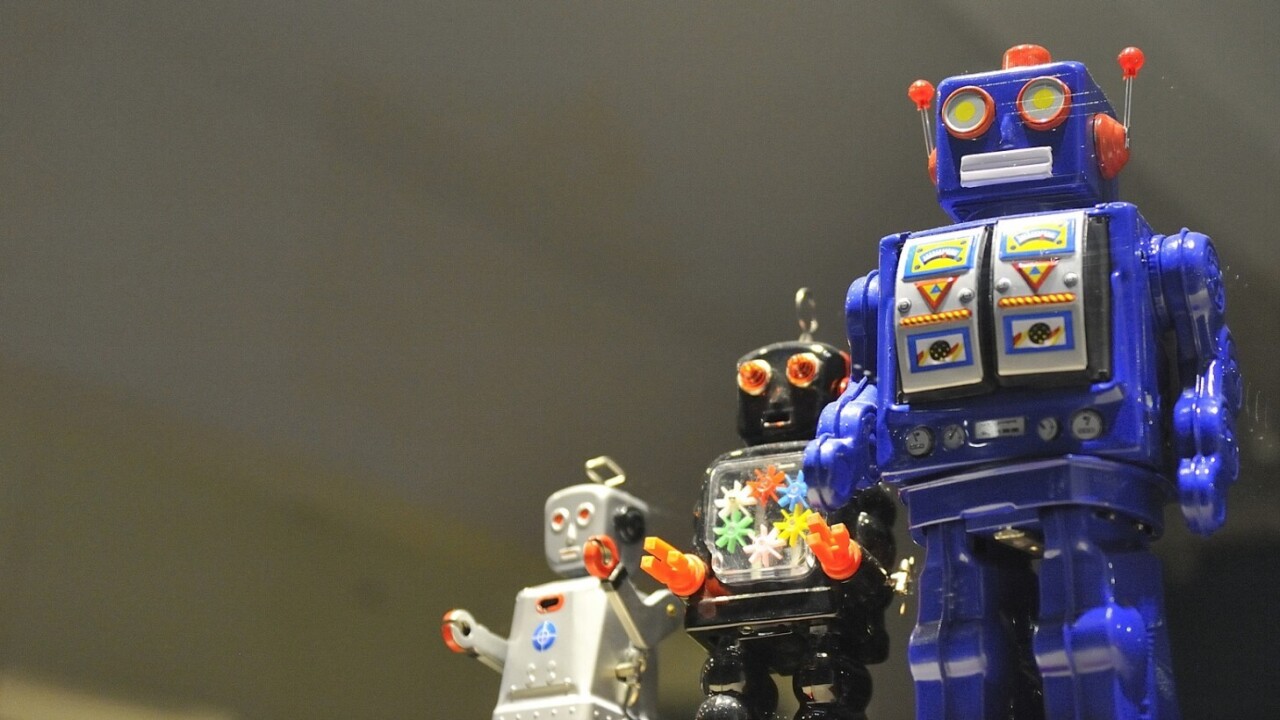Professor Nick Bostrom doesn’t need a crystal ball to predict the future; he’s got an institute for that. He’s the founding director of the Future of Humanity Institute (FHI) at Oxford University. The institute works with researchers and tech companies like Google’s Deep Mind, and Facebook, in the Partnership on AI. It’s purpose is to answer the big picture questions on humanity and ensure we don’t accidentally get destroyed by our own creations — among other things.
Bostrom thinks that we’re entering a new age in human civilization; the AI era has arrived. He predicts machine-learning will represent a fundamental change in how humans exist in the world, similar to the dawn of agriculture or the industrial revolution. Does this mean the AI singularity is upon us? We asked him if the computers were going to take over:
Right now, AI is controlled by the designers. Human designers create the data that the AI uses to perform these tasks, so the danger isn’t very large. But we have to look at it differently than other technology. AI is not just one more cool gadget. Already it can be hard to tell why AI does some of the things it does. We find that, faster than most people would have imagined, deep learning is making it so we do not always understand why an AI chooses to do one thing over another.
Bostrom thinks that the potential outweighs the risks. For a philosopher he’s surprisingly pragmatic. When we asked him about an ethics scenario he’s mentioned in the past involving a driverless car choosing, hypothetically, between hitting a group of children or an elderly couple he said:
If we could reduce the number of fatalities, using self-driving cars, from 1.2 million globally to a very small number, to almost nothing, then I think a lot of the ethical questions concerning situations that would happen only in very rare circumstances, they aren’t as important. Our focus should be on how these technologies will benefit us.
Obviously, the near-future for AI requires the insight of people like Professor Bostrom. His work has shaped the conversation on machine-learning – but what about the nuts and bolts of it all? Are there more practical issues that we should be concerned with besides whether the robots are going to enslave us all? If the whole robot takeover is the product of science fiction and philosophy, we might be losing sight of the applications for AI that aren’t as headline worthy. According to Ram Menon, CEO and co-founder of Avaamo, an enterprise AI bot platform:
Right now there’s been a lot of hype around the future potential of AI to solve moonshot problems like curing cancer or creating smart self-driving cars. While AI may be able to solve these issues in good time, the technology is currently too nascent to make a real impact in these fields now. This hyping up of AI has led people to overlook the ways in which AI can have an impact right now.
Menon agrees with Bostrom: AI isn’t going to be enslaving us any time soon. He feels as though the hullabaloo surrounding AI may be counter-productive to the benefits it can bring today. While Professor Bostrom takes his time pondering the far-reaching implications — lest we overlook something catastrophic — Menon is ready to shape the way businesses use AI today:
Despite what we’ve been seeing in the movies and reading in sensational headlines, we’re still very much in control of AI technology. At the end of the day, if AI starts to act in a way that it wasn’t programmed, we can shut it down. People need to remember that actual humans are building AI and teaching it to act in certain ways or perform certain functions. While the goal is of course being able to function without human intervention, we still have a heavy hand in the technology, and that isn’t going anywhere anytime soon.
Most of us aren’t disappointed to realize the computers probably aren’t anywhere near the mayhem that movies like The Terminator and 2001: A Space Odyssey predicted. Philosophers like Professor Bostrom spend their time ensuring that we’re all prepared for the problems of the future. CEOs like Menon are counting on AI to become fully integrated into our lives ASAP. It isn’t there yet though, the amount of AI the average person encounters day-to-day is not as much as you might think:
A lot of companies are still in the process of implementing AI and training it to perform certain functions before making it customer facing… A lot of the AI technology currently being implemented is on the back-end, helping analyze and sort through massive quantities of data. However, as conversational AI becomes more popular, chat-bots will become the first real day-to-day interaction people will have with AI.
There’s a lot of doom-and-gloom reporting concerning artificial intelligence, but most of it appears to be exaggerated (for now). We should be aware of the potential for catastrophe when implementing a monumental new technology, there are definitely real concerns – but the sky isn’t falling just yet.
Get the TNW newsletter
Get the most important tech news in your inbox each week.






